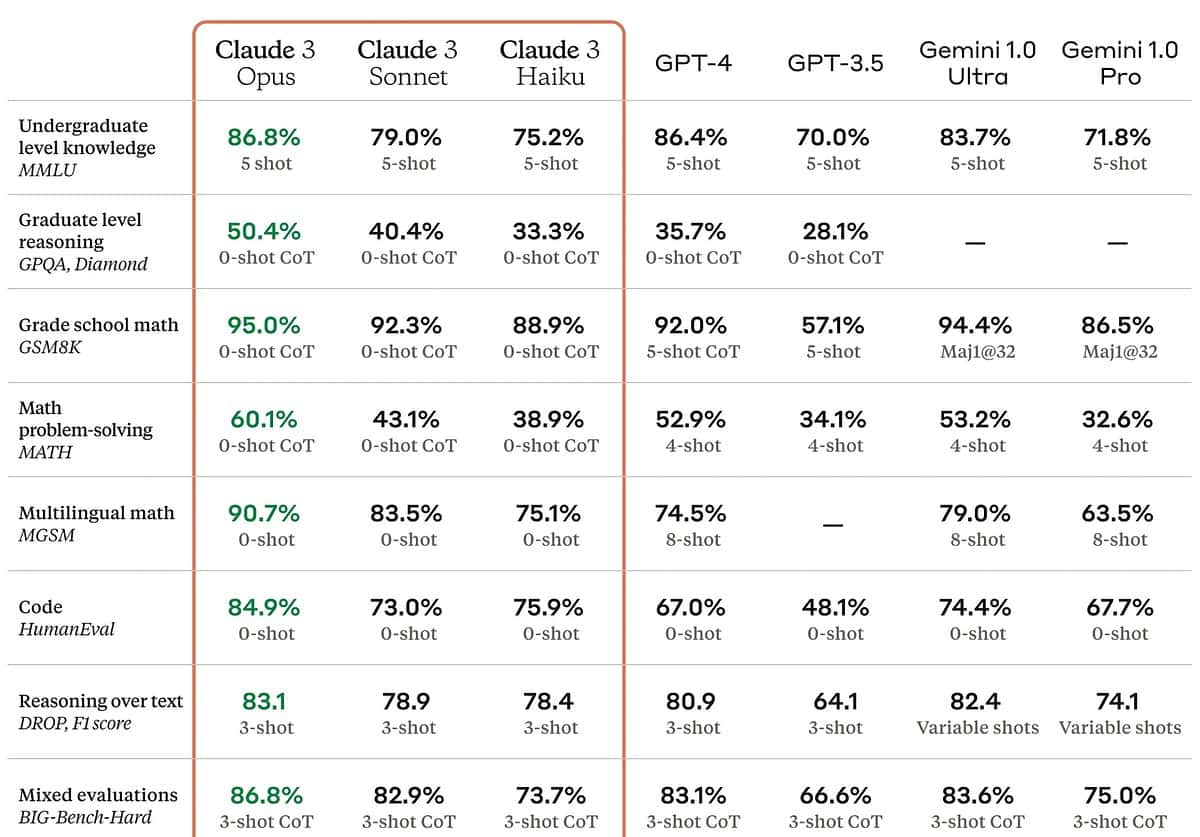Anthropic Introduces Claude 3 LLM Model Outperforming OpenAI GPT-4 and Google Gemini 1.0 Ultra
Anthropic has unveiled the Claude 3 model family, consisting of Haiku, Sonnet, and Opus models that excel in intelligence, speed, and cost-effectiveness for diverse AI applications. Opus stands out by surpassing OpenAI GPT-4 and Google Gemini 1.0 Ultra in knowledge comprehension and fluency. The models are optimized for real-time interactions, with Haiku processing research papers swiftly, Sonnet enhancing knowledge retrieval and sales automation, and Opus delivering high intelligence levels. Additionally, the models have impressive vision capabilities and are less likely to refuse prompts compared to previous generations.
Customize Summary
Rewrite with AI
Generate Citations
Translate Source
To Another Language
Generate MindMap
from source content
Visit Source
mspoweruser.com
Anthropic announces Claude 3 LLM model that can beat both OpenAI GPT-4 and Google Gemini 1.0 Ultra - MSPoweruser
Key Insights Distilled From
by Software at mspoweruser.com 03-04-2024
https://mspoweruser.com/anthropic-announces-claude-3-llm-model-that-can-beat-both-openai-gpt-4-and-google-gemini-1-0-ultra/
Deeper Inquiries
